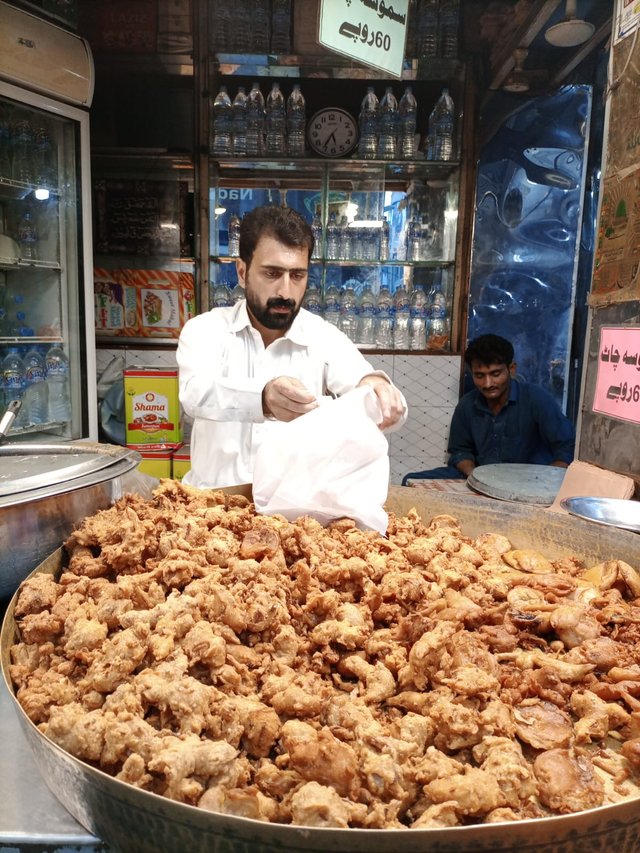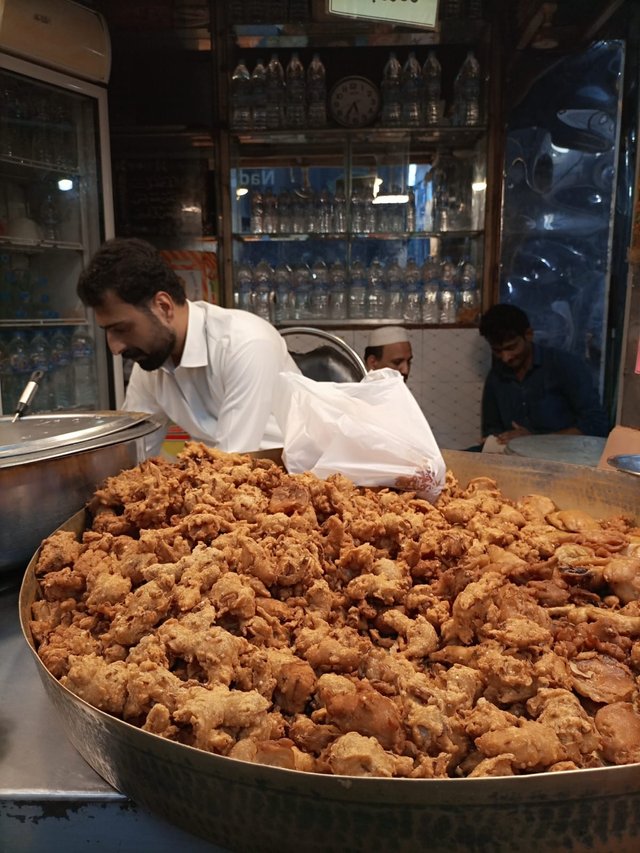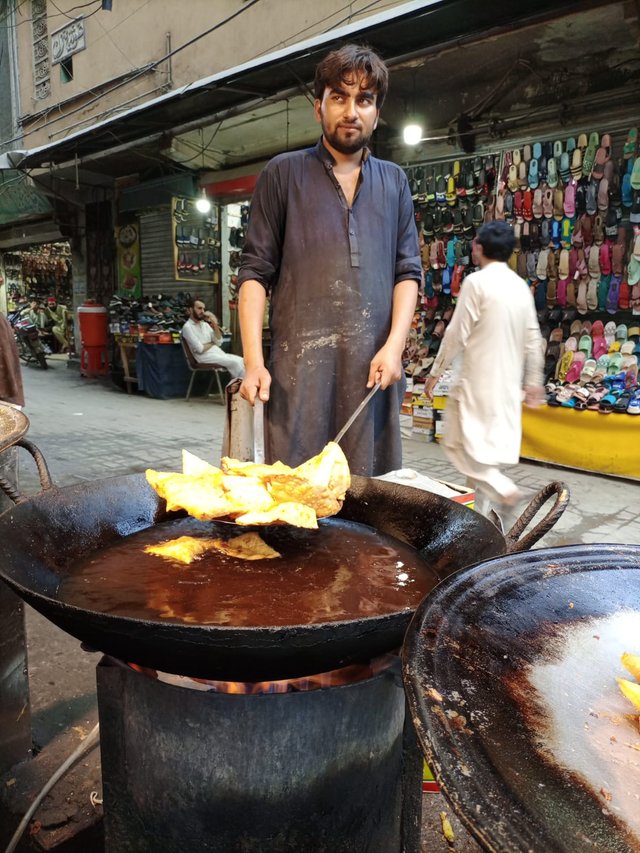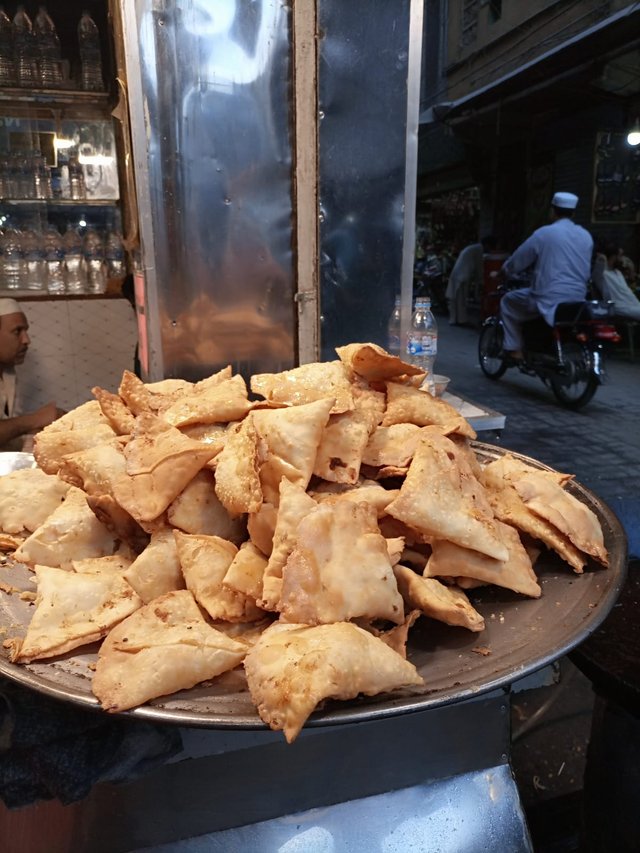Economic activity || 14 April 2023 || Buying samosa and pakora (friters) for iftari.
The month of Ramadan is a significant time for the Muslim community as it marks a period of fasting, prayer and reflection. One of the most important aspects of Ramadan is iftar, the breking of the fast that takes place every evening at sunset. During this time, families& communities come together to share a meal & celebrate the end of the days fast.
In many Muslim communities iftar is a time for hospitality & generosity, with people opening their homes & sharing food with others. As result economic activity surrounding food & hospitality increases significantly during the month of Ramadan. This is especially true for popular iftar snacks such as samosas & pakoras.
Samosas & pakoras are traditional South Asian snacks that are enjoyed by people of all backgrounds. They are made by frying or baking a pastry filled with spiced vegetables or meat, & are often served with chutney or yogurt dip. During Ramadan, these snacks are in high demand as they are easy to prepare, delicious & can be shared with a large group of people.


On April 14 2023, we will explore the econmic activity surrounding the purchase of samosas & pakoras for iftar. We will exmine the market demand for these snacks, the supply chain invOlved in their production, and the impact of the increased demand on local businesses. Through this analysis, we hope to gain insights into the economic activity surrounding this important aspect of Ramadan& its wider impact on the local community.
#how to make pakoras
here is a general procedure for making pakoras and samosas:
Making Pakoras:
IngRedients:
1 cup bessan (gram flour)
1/4 cup rice flour
1 tsp red chili powder
1 tsp turmric powder
1 tsp cumin powder
1 tsp coriander powder
1/2 tsp baking soda
1 tsp salt
1 cup chopped vegetables (such as onions, potatoes, spinach, or cauliflower)
Water (as needed)
Oil for frying
ProcEdure:
In a mixing bowl combine besan, rice flour, red chili powder, turmeric powder, cumin powder, coriander powder, baking soda, and salt.
Gradually add water to the dry ingredients & mix well to form a thick batter.
Add the chopped vegetables to the batter & mix well to coAt them evenly.
Heat oil in a deep frying pan over medium heat.
Once the oil is hot, drop spoonfuls of the batter & vegetables into the hot oil.
Fry the pakoras until they are golden brown aNd crispy.
Drain the pakoras on paper towels to remove excess oil.
Serve hot with chutney or ketchup.


#how to make samosa:
Ingredients:
1 cup all-purpose flour
1/4 cup oil or ghee
1/2 tsp salt
Water (as needed)
1 cup potato boiled & mashed
1/2 cup green peas, boiled and mashed
1 tsp cumin seeds
1 tsp coriander powder
1/2 tsp garam masala
1/2 tsp red chili powder
SaLt to taste
Oil for frying
ProcEdure:
In a mixing bowl, combine flour, oil or ghee & salt.
Gradually add water to the mixture & knead the dough until it becomes smooth.
Cover the dough with a damp cloth& let it rest for 30 minutes.
In a separate pan heat oil & add cumin seeds.
Add the mashed potatoes and peas, along with coriander powder, garam masala, red chili powder, and salt.
Cook the mixture for 2-3 minutes until it becomes aromatic & well combined.
Divide the dough into small balls & roll each ball into a thin circle.
Cut each circle in half to make semi-circles.
Fold each semi-circle to form a cone& fill it with the potato-pea mixture.
Seal the edges of the cone with water & press them firmly to close the samosa.
Heat oil in a deep frying pan over medium heat.
Once the oil is hot, drop the samosas into the oil & fry until they turn golden brown & crispy.
Drain the samosas on paper towels to remove excess oil.
Serve hot with chutney or ketchup.
Note: These are general procedures for making pakoras and samosas. The ingredients & cooking methods can vary based on personal preferences & regional variations.
prices :
1 kg pakoras = 400Rs ( 6.3 steem)
1 samosa =20 Rs (0.3 steem)
In conclusion buying samosas & pakoras for iftari is common economic activity during the month of Ramadan in many regions of the world. While the prices may vary depending on several factors, these snacks are affordable & easily available, making them a popular choice for breaking the fast. Whether enjoyed at a street vendor or a high-end establishment, samosas & pakoras are a delicious & integral part of the iftari expErience.
Well done .. you write very well .. pa roja ke pakawre na we nu baya ho wand na kawe
hahah thanku